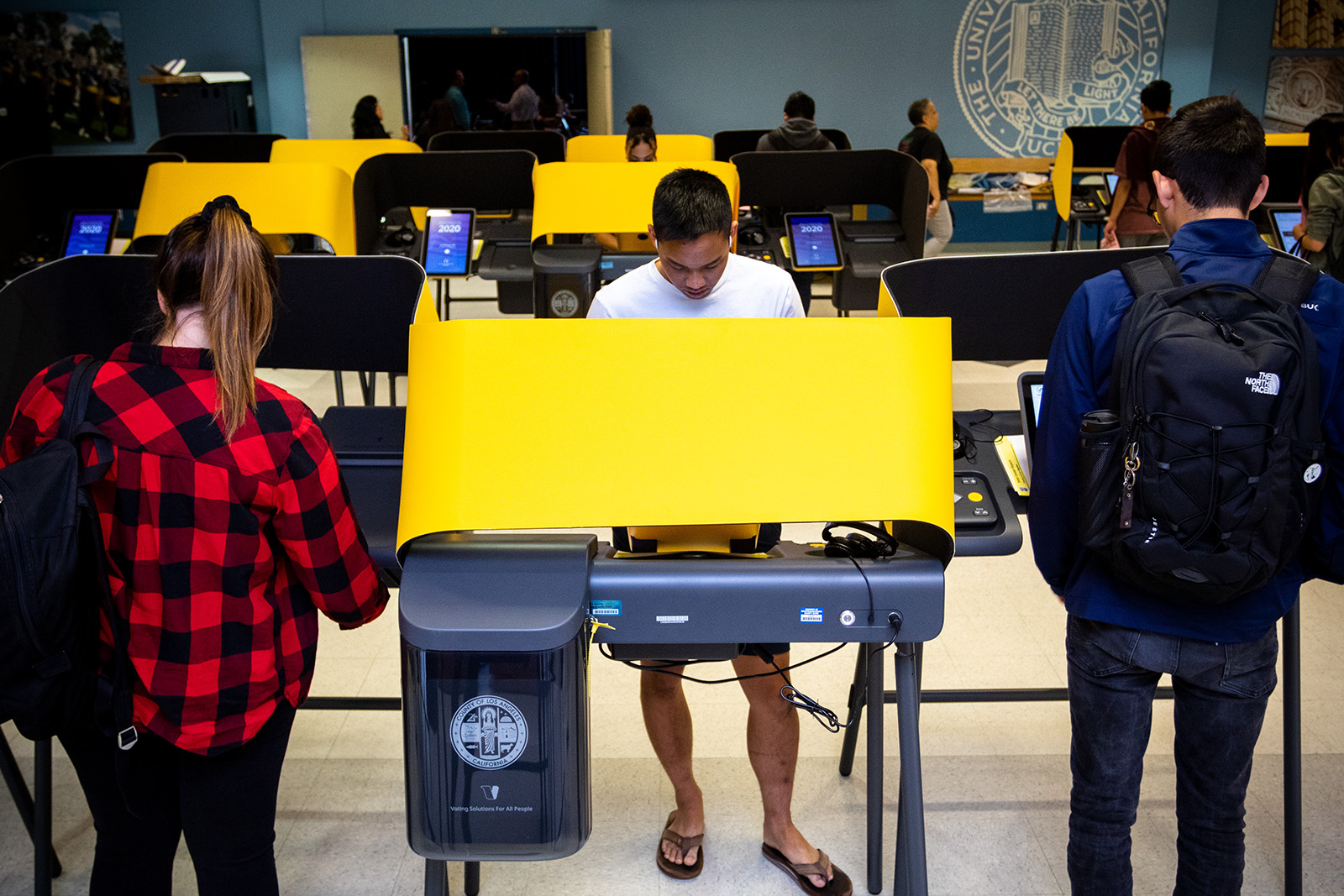UCLA-led nationwide survey sheds light on policy divides ahead of 2020 election

UCLA political science professor Lynn Vavreck and political science associate professor Chris Tausanovitch released the first report of their study, Nationscape, on Feb. 28. The study attempts to identify people’s priorities beyond asking what they agree or disagree with. (Jintak Han/Daily Bruin senior staff)

By Saumya Gupta
March 16, 2020 11:25 p.m.
UCLA researchers found that strong similarities between Democratic voters could allow for a Democratic presidential nominee on either side of the ideological spectrum.
The findings, which were released Feb. 28, are the first report of an ongoing study by UCLA political science professor Lynn Vavreck and political science associate professor Chris Tausanovitch.
Vavreck and Tausanovitch have been interviewing about 6,250 people every week since July, and will continue to do so until inauguration day as a part of their study called Nationscape.
The Nationscape study found that Democratic supporters tend to agree on most topics, such as tax cuts for lower-income families and a path for Dreamers to become citizens, regardless of which candidate they’re supporting. This allows each of the candidates to receive support from a multitude of people with different ideological views.
The study’s goal is to figure out what people’s priorities are by going beyond just asking what people agree and disagree on, Vavreck said.
Most of the survey seems like a typical election survey with questions asking who a person is voting for, how they feel about the presidential candidates and how they feel about 50 certain issues, Vavreck said. However, there’s also a part that asks people to choose between two sets of policies, she added.
For example, a person would have to decide whether they would rather live in a world where there’s 12 weeks of paid maternity leave, but abortion is illegal, or if they would rather live in a world where there’s no paid maternity leave, but abortion is legal, Vavreck said.
“We’re trying to force people to make choices about the kind of world they want to live in,” Vavreck said. “So we make people choose which world they prefer, and everybody does that at least 10 times. And by doing that, they reveal to us which issues are the most important ones to them and so that’s what we’re really hoping to figure out.”
According to the first release of the data, published in partnership with USA Today, background checks for gun purchases has overwhelming bipartisan support so far, with 84% of Republicans and 92% of Democrats supporting the background checks.
Construction of a wall on the United States’ southern border with Mexico, on the other hand, is one of the most decisive policies with only 13% of Democrats supporting the wall compared to 70% of Republicans.
Vavreck added that so far there appeared to be a difference between Democrats and Republicans in terms of their priorities, but among Democratic supporters, there weren’t many differences.
“All Democrats seem to have the same kind of priorities, whether they’re supporting Bernie Sanders or Joe Biden,” Vavreck said. “But all those people are different from Republicans.”
Based on the study, it seems there are a lot of people with a variety of political opinions supporting each of the candidates, Tausanovitch said.
“It doesn’t look like you need to be a progressive candidate necessarily in the Democratic primary to get votes from progressives,” Tausanovitch said. “It doesn’t look like you necessarily need to be a moderate candidate in order to get votes from moderates, and that means that a primary process like this could result in candidates with very different ideological profiles doing well.”
Democratic voters’ ideological views don’t seem to serve as a constraint on who the Democratic nominee could be, Tausanovitch added. It could result in a nominee who’s a relatively centrist Democrat or an avowed democratic socialist, he said.
“The typical way that we think democracy should work is that people choose the candidate that best fits their views, and that doesn’t appear to be what is happening,” Tausanovitch said. “At least within the Democratic primary.”
Results from the study will be continuously posted every week on USA Today, according to a UCLA press release.
By the end of the study, Vavreck and Tausanovitch hope to have interviewed 500,000 people in total, with at least 1,000 people from every congressional district in the country.
By having 1,000 people from each congressional district, the study will be able to tell stories about the country, Vavreck said. They can tell the differences between being a Republican in Michigan compared to California, and the differences between being in the country’s interior versus being on the coast, she added.
Vavreck said they designed the study after the 2016 presidential election prompted questions about polarization and split among Americans and their political views.
“We wanted to design a story that could actually tell us whether people were more similar or dissimilar across the country, and no one had the data to know that,” Vavreck said. “So we thought that we could collect the data and we could really have something to say about how people are the same or different across the landscape of the country.”

